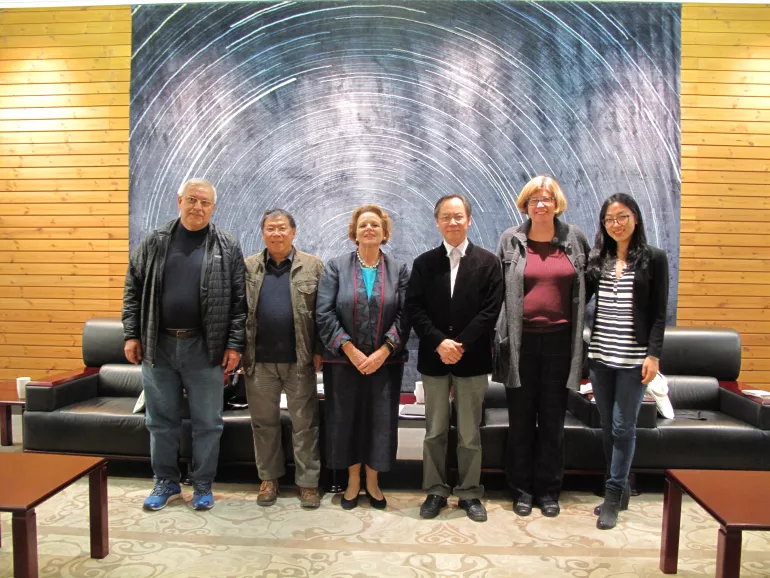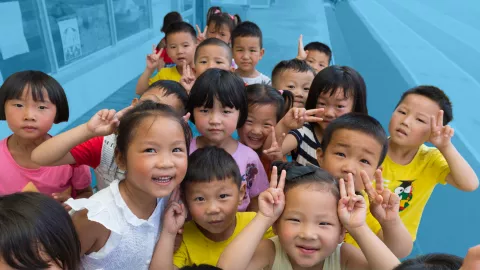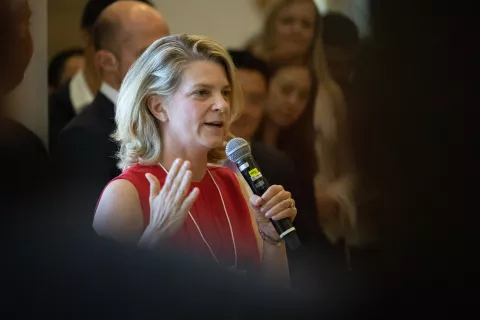UNICEF Partners with Tsinghua on Innovation for Children

- Available in:
- 中文
- English
8 January 2015 – UNICEF and the Department of Information Art & Design, Academy of Art & Design at Tsinghua University are establishing an Innovation Lab, with the aim of harnessing innovation to address the rights and needs of children.
The cooperation between UNICEF and Tsinghua University was established within the framework of UNICEF's Innovation Lab, which brings business, academia, governments and civil society together to create sustainable solutions to the most pressing challenges facing children and youth around the world.
“Innovative solutions co-created with public and private sectors in China have the potential to be scaled up to improve lives for the most marginalized children and their families both here domestically and as well as globally,” said Gillian Mellsop, UNICEF Representative for China.
The UNICEF-Tsinghua University collaboration will serve as a research and development engine with an initial focus on assistive technology for children with disabilities. One such flagship product – the Tactile Tablet for children with disabilities – allows blind and visually impaired children to read books, intake text, audio and visual information, take notes and input their own information. The open source, low cost device has the potential to provide valued opportunity for blind and visually impaired children to interact with information and learn alongside their peers.
The Innovation Lab also introduces the semester-long Design for UNICEF Class that will take place in the spring of the 2015 academic year. The Class will engage Tsinghua students and faculty in examining some of the challenges UNICEF faces, and working on research and rapid prototyping for solutions. Similar initiatives have been started at New York University, IIT-Delhi, Art Centre College of Design, Stanford University and Alto University.
UNICEF Innovation (unicefstories.org and www.unicef.org/innovation) consists of a global interdisciplinary team of individuals who are tasked with identifying, prototyping, and scaling technologies and practices that strengthen UNICEF's work to improve children's lives around the world. It consists of an Innovation Unit based in New York and San Francisco, an Innovation Center in Nairobi, a Supply Innovation Unit in Copenhagen, and more than 10 innovation labs established globally.
Media contacts
About UNICEF
UNICEF works in some of the world's toughest places, to reach the world's most disadvantaged children. Across 190 countries and territories, we work for every child, everywhere, to build a better world for everyone. For more information about UNICEF and its work for children visit www.unicef.org.
| Visit UNICEF China website: www.unicef.cn Follow us on Sina Weibo: http://weibo.com/unicefchina Tencent Weibo: http://t.qq.com/unicef Wechat: unicefchina |



